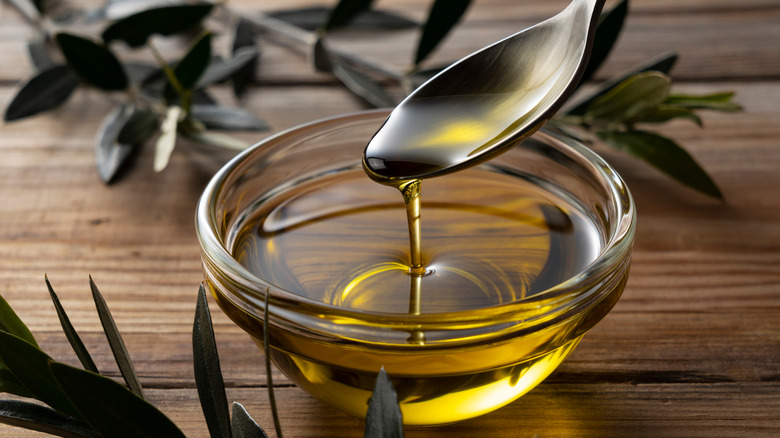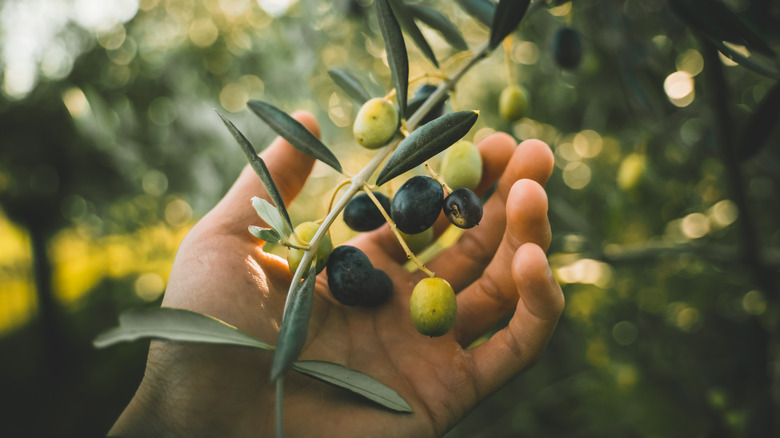The Theft Problem That Could Be Impacting Your Olive Oil
Consumers around the world may be finding their wallets strained as olive oil prices remain at an all-time high. In May 2023, Fortune Business Insights predicted that international sales of this popular cooking ingredient will continue to rise steadily into 2030. However, diminishing crop yields and hostile weather conditions have set back farmers in countries that export the most olive oil. Now, unexpected factors are further complicating the situation, as Greece experiences a wave of thieves who are set on robbing the crops of local olive oil farmers.
According to Reuters, natural disasters such as droughts have hindered Greece's olive oil output by almost 50% in 2023. This has caused the price of Greek olive oil to skyrocket, which has attracted the attention of criminals looking to make money off of the increasingly rare oil. Reuters reports that thieves steal olives or olive branches from trees and then extract the oil themselves for a profit. The Guardian reported that one of the largest olive oil robberies happened in October 2023, where thieves stole almost 37 tons from an agricultural co-op in Polygyros, northern Greece. This loss alone cost manufacturers almost $330,000, further widening the gap between the production of oil and the high demand for it.
Temperatures have also led to struggles with olive oil
Robberies aren't just impacting Greek olive oil manufacturers financially. Climate change has significantly decreased the quantity of olives available for harvest, another contributor to the rising price of the olive oil in stores near you. With burglars now hindering Greece's olive oil production, other prominent olive-growing nations such as Italy, Spain, and Turkey — the other Mediterranean nations that pioneer the majority of olive oil production — now have to kick up their prices further to accommodate this loss. These production issues travel all the way to your local supermarket, which likely gets its olive oil from these regions.
Much like Greece, these three countries have expressed concerns over how the changing climate has impacted their crops. For example, Spain has experienced an increase in days with outside temperatures of over 100 degrees Fahrenheit, and in turn, the price of its olive oil — made with increasingly rare olives — has jumped up over the past year. Spaniards could buy high-grade olive oils for cheap in the past, but now, consumers are worried that manufacturers are no longer capable of keeping business up without hiking up prices.
Save your wallet with alternatives such as canola or vegetable oil
If you're having trouble finding your favorite olive oil, or find its current price unaffordable, consider swapping it out with another cooking fat that will get the job done. If you use extra-virgin olive oil for everyday cooking, canola and vegetable oil have similar smoke points. Grapeseed, sunflower and avocado oil are also viable alternatives, but are a bit more expensive. If you're not against using animal products, clarified butter and ghee are also super versatile in the kitchen.
Few alternatives match the complex flavor profile of extra virgin olive oil, which makes recipes like oil-and-herb bread dip particularly challenging to modify. If you're adamant about getting that olive oil taste in your dishes, try to use olive oil only on special occasions. Alternatively, there are plenty of oils that also add strong flavors to dressings and dips, such as sesame oil. Experiment with various flavorful and neutral oils over time and see what works for you.



